Apartment Hunting Posted by sequoia on Jun 9, 2012 in Icelandic culture
Finding an apartment near the capital that’s both within a budget and not completely broken-down or in a bad area is pretty hard. The second hard thing is knowing what your budget will be after necessities, if you have little idea of prices in Reykjavík. First we’ll estimate the monthly expenses that you’ll have to take out of your budget. Your two tools are Landsbankinn’s currency exchange page, and ja.is which is basically Google maps for Iceland.
Note: If anyone reads this in the future, the prices I’m estimating have probably changed. They changed especially fast in the last few years due to the economic collapse of 2008, rapid increase in tourism and exchange students, and the recovery starting, not to mention this has affected the amount of housing even available.
Food: 20.000kr. I pay for two people, so I took a bit off of my own costs to try and adjust for a single person. This is only food from the grocery store (the cheapest chain – Bónus), nothing from cafés or otherwise eating out.
Commuting: This largely depends on how far away you live from school/work and if you buy a bus card or not. Let’s pretend you buy a bus card for just the area immediately around the capital, and it lasts for nine months. That costs 42.500kr (about $335 USD at the time of writing this post, according to the exchange rate). We’ll ignore the remaining three months of the year to balance out between people who eat less, people who don’t need to travel in the summer, people who can buy a cheaper bus card that only students get to have, et cetera. This means commuting costs are a little under 3,550kr per month.
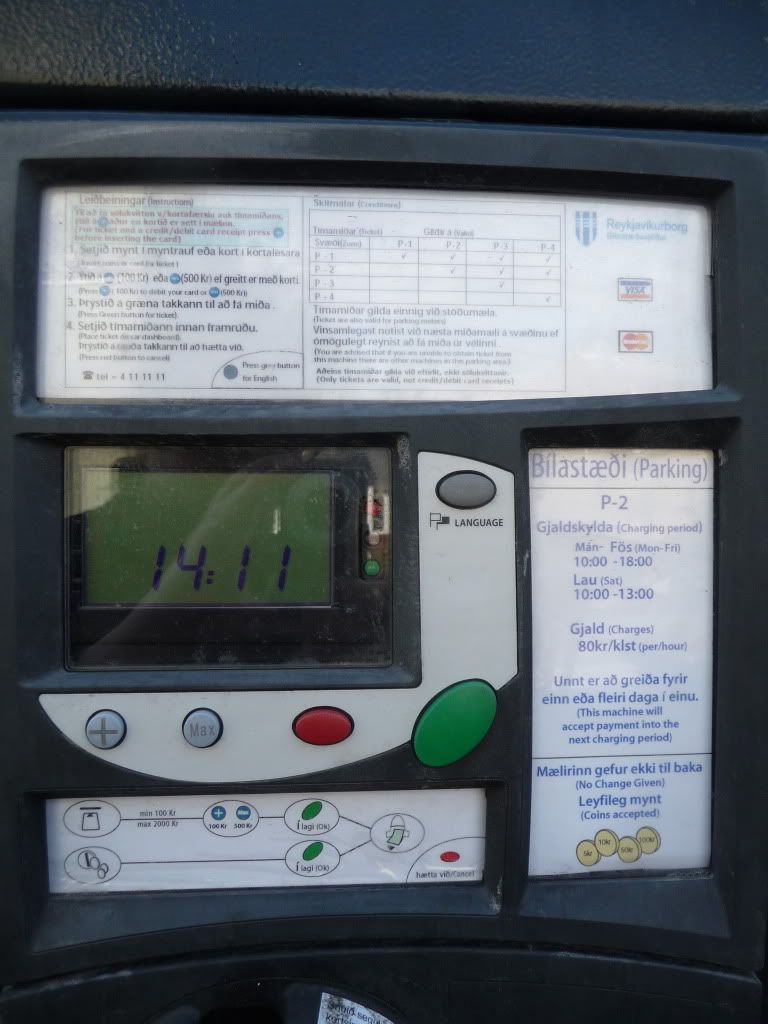
This shows the cost in one place downtown for parking your car.
Misc. costs: If you take medicine continuously, it probably costs something like 2.000kr per month excluding doctor’s visits (which may be even 7.000kr per visit). Let’s pretend that your cell phone and internet bills are the same (although they’ll probably cost more, maybe even triple that if you’re unlucky, and internet isn’t usually included in rent), so sans medicine that would be 4.000kr. The average price of a cup of coffee or tea is probably 400kr and you can expect to pay anywhere from 1.000 to 4.000kr each for snacks and meals when eating out, on the cheaper side.
Total for necessities: about 28.000kr per month (about $225 USD). This is without eating out or medicine.
If you want a flat all to yourself, you’re going to have to pay more. Most cheaper apartments are shared in some way whether they’re dorm-style with an entire floor sharing things or whether they just share a kitchen and bath with a couple of other bedrooms. You’re also going to have to pay one month’s rent in advance (so, right when you move in you actually pay two months’ rent for your first month, then your last month in the place is “free”). More expensive places might have you pay more in advance. The only place where I had to pay a damages deposit (meaning you pay an extra month’s rent in advance in case you break stuff or don’t clean properly when you move out, then at the end they take some money out of your deposit to cover the damages and give you the rest back) was in the University of Iceland’s student housing, and only foreigners had to pay that. Student housing has some other special rules, but I’ll not mention them.
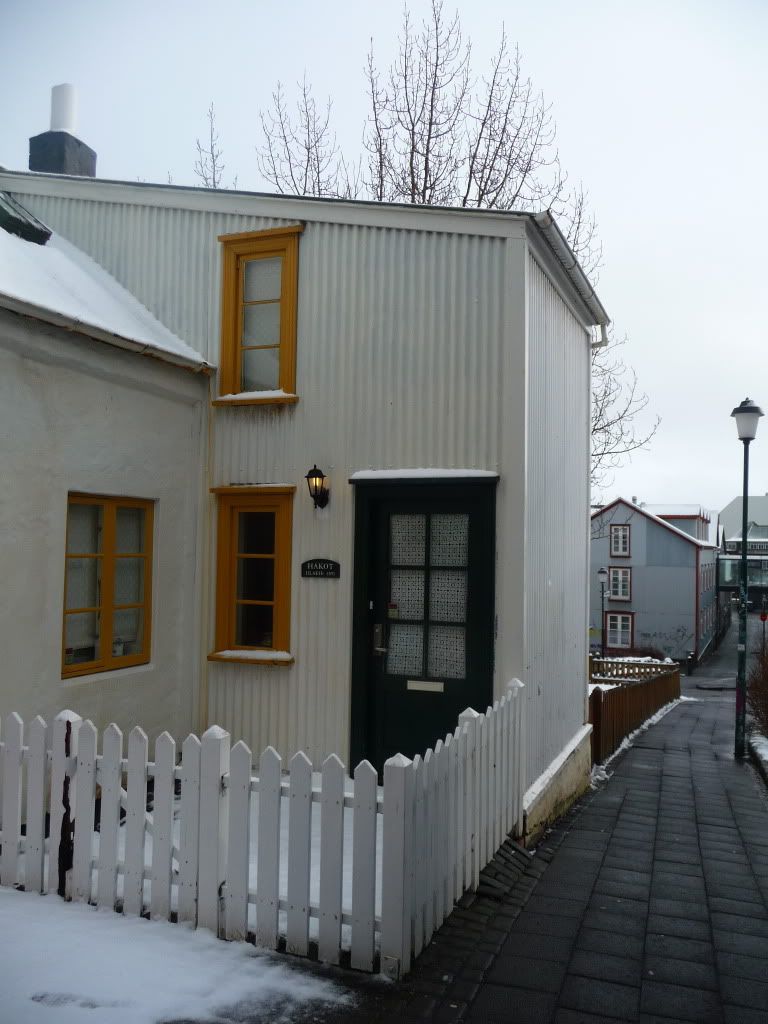
Some tiny houses exist and often they’re in random places downtown, but by far most are average-sized. The average ones you can rent, but I’ve only ever seen the tiny ones for day-rentals (guesthouses) or for buying, not monthly renting.
The vast majority of ads are in Icelandic. Some are also in misspelled English, although this is likely because they can’t be bothered to fix typos and not because their English is bad, and some are also in Polish. Some places specifically do not want foreigners, or make excuses once they find out you’re foreign, but on the other hand I did stay at one old lady’s place where she preferred foreigners (apparently “Icelanders break everything and party all the time”).
By far the biggest struggle is getting landlords to actually show you the place – I’ve had countless ones not respond to Emails or phone calls, say “just need to find the keys, it should only take an hour” and then never get back to you, tell you that so-and-so knows about it and to call back but so-and-so is never in or doesn’t know about it either, suddenly the flat is given to someone else despite them telling you yesterday it was available to look at, et cetera.
The other challenge is finding a place that’s not completely seedy or run-down. If you have a larger budget this isn’t a problem, but I’ve always looked at/lived in places that cost 45.000 to 60.000kr in rent. At this bracket, sad to say, you’re lucky if everything in the house can still function or is passably clean when you move in. I have a lot of horror stories about this price range. One place I checked out had fresh bloodstains on the stairway, smelled super strongly of smoke, was situated in an industrial district and not a housing district, and the police pulled up immediately after we left (don’t bother even looking at a place in “Funahöfði”, it’s this place that I’m talking about and everyone I’ve talked to agrees that it’s a terrible area). It’s sad to say but the main rule is if the tenants are all/mostly foreigners, especially if the landlords are also Icelandic (Icelandic landlords don’t care if everything is run-down, they only want the space filled), then you’d better be prepared for some bad stuff.
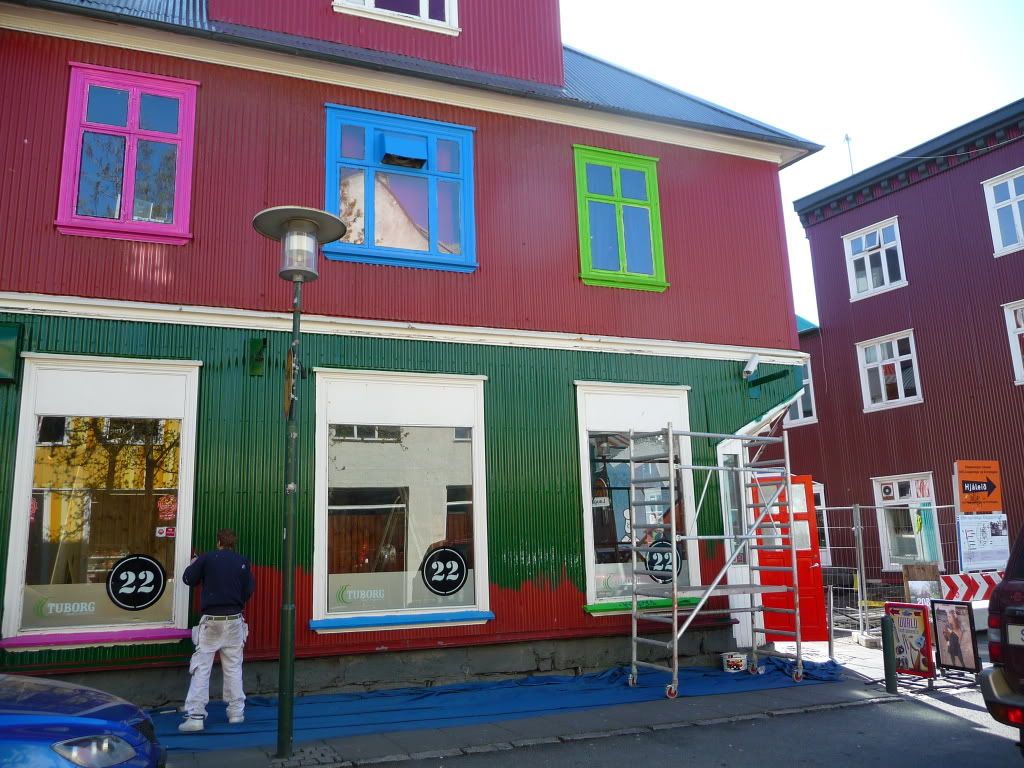
If you want an extremely colourful Icelandic house, sorry, most of them are only in a specific area (zipcode 101) and a lot of them even then are actually businesses, like this one. The owners might even live in the same building, just on a different floor. It’s usually a package deal, you either pay for the shop space and the living space both or you get nothing. Most regular houses are single/dual colour or unpainted.
If you’re two people then you have a bigger problem, in that Icelanders apparently have a super large personal-space bubble and won’t allow two people to share a room even if it’s 15 square meters (personally, I think two people work fine in even 10 square meters, especially considering these aren’t places you’re going to be settling down in). It’s not illegal, it’s just that most likely the landlord will tell you that they think it’s too small and so they won’t let you rent it.
Other things you should know are that when moving out, you need to give at least one month’s notice in advance (yes, that’s all, unless you have a contract that says otherwise!), although to be kind I’d give as much notice as possible. Most landlords will refuse to give you a rent contract because they’ll have to pay more taxes if they do. This also means they can evict you on extremely short notice. When looking for apartments, most people want you to move in immediately or at the beginning of the next month. If not that, then they’re often people who are going on holiday for a while and want someone to take the room only temporarily (they’ll list the dates the room is available for). It’s not often possible to find a long-term place to stay a few months in advance.
Watch out for:
gist- and gest- (guest-house). This means you pay per night or per week. Examples: gistiheimili, gisting, gestahús
sumar- (summer rental cottage/house). Same as above. Examples: sumarhús, sumarbústaðir
verð á sólarhring – price for 24 hours
Ó.E., óskast, óskast eftir – “wishing for” looking for. Often on forums people will misfire their threads and end up in the wrong section, so if you see ÓÉ then you know it’s the poster looking for a place and not the poster renting a place out.
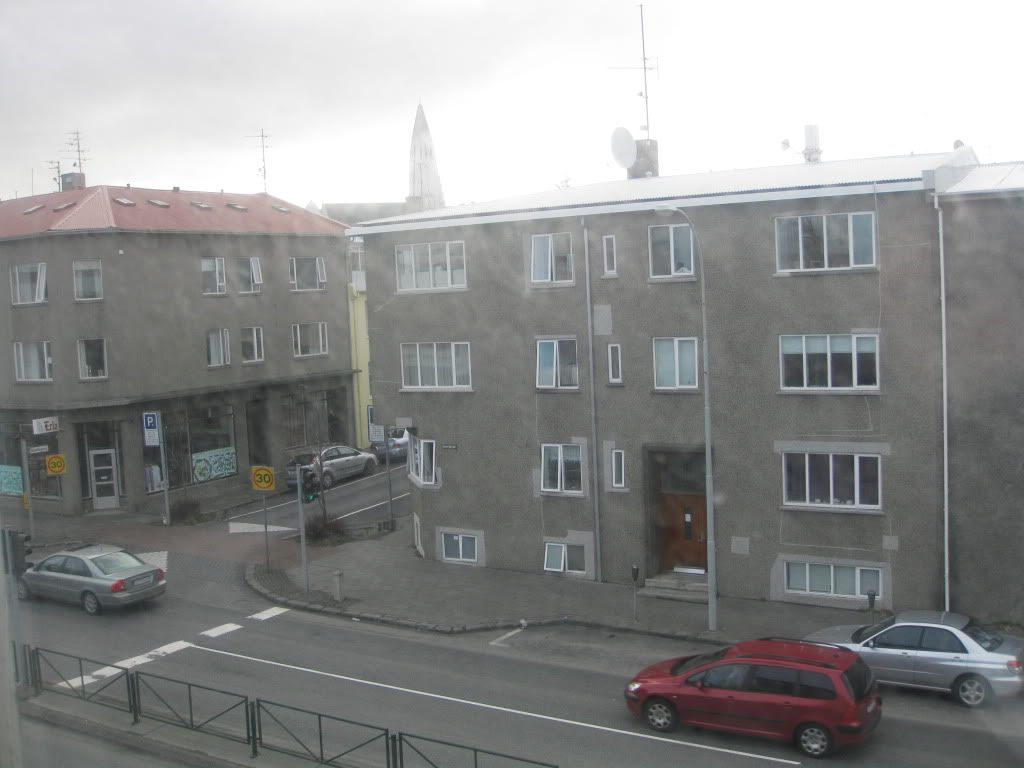
Unfortunately this is the type of dreary, grey, broken-down concrete houses, buildings, and apartments that exist in most places in the capital. The plainness of the outside doesn’t always correlate with the inside though.
Common terms:
bað – bath
eldh. “eldhús” – kitchen
herb. “herbergi” – room
þurrkara – dryer (quite possibly this isn’t a standalone dryer, it’s actually just a washing machine with a built-in drying cycle)
þvottavél – washing machine
forstofa – hallway
bílskýli – car shelter
bílageymsla – garage/car park
rafmagn – electricity
salerni, klósett, WC – toilet (and probably means only a toilet, not a toilet and bath or full bathroom)
geymsla – storage (typically either a space for bicycles and prams, or a small space a bit bigger than closet-sized)
pallur, sólpallur – “platform”, actually meaning patio I assume?
svalir – balcony
sturtu – shower
ísskápur – fridge
eldavél – stove
heitur pottur – “hot pot”, hot tub (basically, many Icelanders won’t know that the English word is actually “hot tub” so if you’re asking about it you need to say “hot pot”)
sérinngangur – “its own entrance”. Often there are places that were originally large houses and then they got split into condos and the like. Sometimes they have a shared front door and then you go up some steps or something to your own section, and sometimes you all have your own door.
s. “sími” – phone
í s. – by/over phone
þ. or þús. “þúsund” – thousand
m. “með” – with
fm. “fermetrar” – square meters
stk. “stykki” – each
húsg. “húsgögn” – furniture
uppl. “upplýsing” – information
pr. (seems to be slang for the English word?) – per
h. “hæð” – floor (ex. “on the 5th floor”)
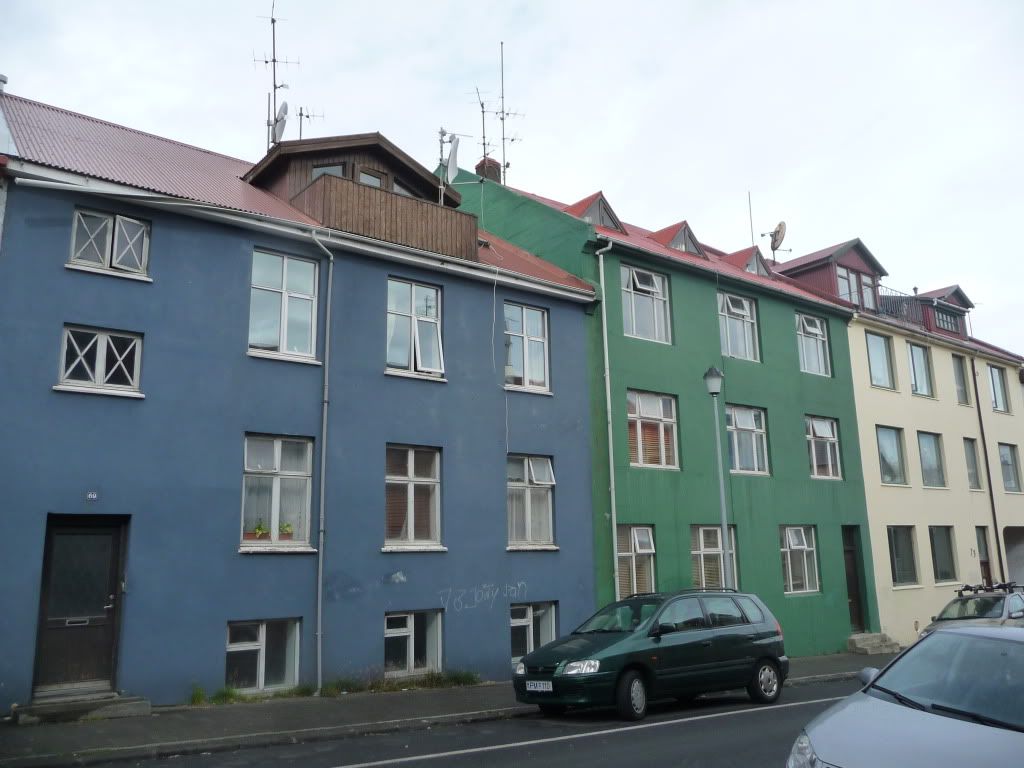
I think the two on the right might be what’s supposed to be a row-house? You can see the paint colour dividing them even though the building itself is the same.
laust strax – free immediately
til leigu – for rent
tilboð óskast – offer wanted (meaning they want you to offer them a price)
langtímaleiga – long-time rental (this means they prefer that you’re staying there for multiple years)
höfuðborgarsvæði – capital area
allt innifalið (nema)… – all-included (except for). This means that everything is included in the rent. If it says that expect garbage, electricity, water, and heat to be included (not internet, and most places don’t have their own parking so if you have a car you’ll have to just pay the cost of parking on the street at the parking meter).
bankaábyrgð – deposit
búsetuform – form of residence (type of building/house)
blokk – apartment complex/block
fjölbýli – “multi-residence”, apartment complex
einbýli – “single-residence”, house
par/raðhús – “pair/rowhouse”. I think these are long buildings split into parts like in the photo above, so maybe three families actually live in the same very long house, with each part totally sectioned off. Sometimes you see long houses downtown where half the house, or the middle section, is painted an entirely different colour from the rest. I think that marks the different living spaces.
á mánuði – per month
reyklaust hús – “smokeless house”, meaning no smoking allowed
trygging – insurance
gæludýr – pets
– How many rooms do you need?
– How much can the rent be?
Visir.is’ rental ads
MBL.is’ ads
Leiga.is
Bland.is’ ads
Leigulistinn.is (you need to pay a subscription to gain access)
Studentamidlun.is (only for students)

Build vocabulary, practice pronunciation, and more with Transparent Language Online. Available anytime, anywhere, on any device.
About the Author: sequoia
I try to write about two-thirds of the blog topics on cultural aspects and one-third on the language, because there's much more out there already on the language compared to daily life information. I try to stay away from touristy things because there's more of that out there than anything else on Iceland, and I feel like talking about that stuff gives you the wrong impression of Iceland.



